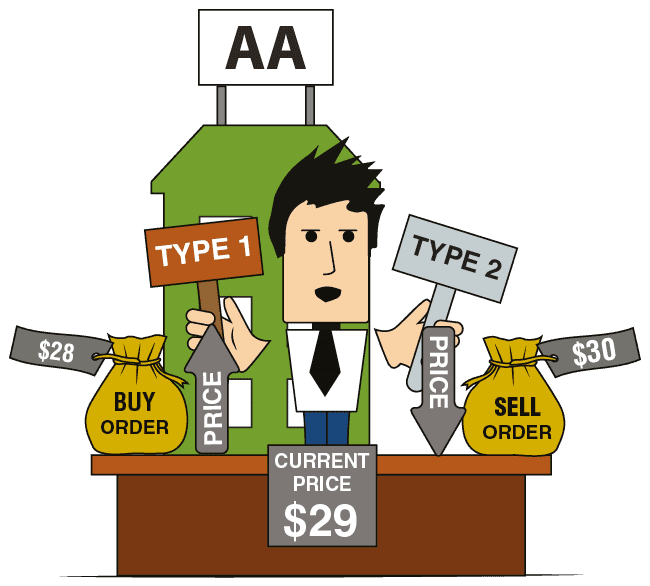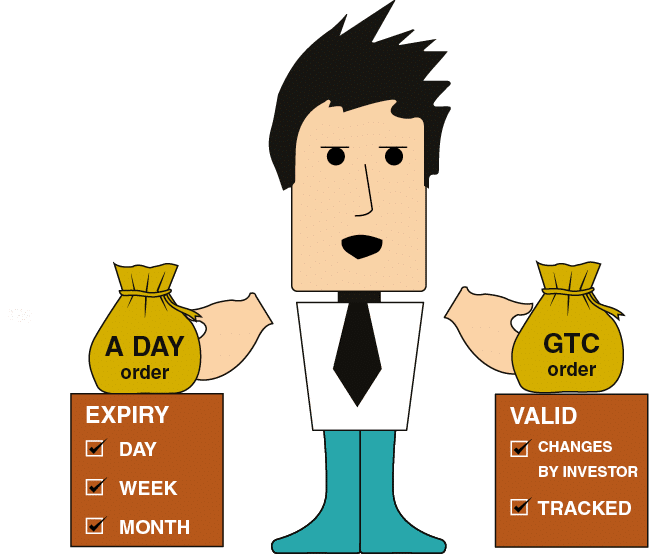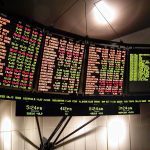Investors in stock market place their orders to buy or sell stocks through their brokers.
Each order has four important elements:
-
The type of order (buy or sell).
-
the number of shares.
-
the price limit (the price at which the buyer or seller wishes to buy or sell).
-
the expiry date (including the time frame for carrying out the order)
The top two elements are simple, and are the same for all types of orders. However, there are several different types of orders with respect to the price and expiry date.
Types of Stock Orders with Respect to the Stock Price
Understanding Different Types of Stock Orders with Respect to The Stock Price
- Limit order – an order that limits the sale or purchase price
- A Market order – an order to buy or sell a stock at the current market price

A limit order (LMT)
The following examples refer to the Alcoa stock (ticker: AA), which has a price of $29.
There are two types of limit orders:
Type 1
An order to buy or sell until a predetermined price is reached. These Types of Stock Orders are issued at a higher price than the current price, and sell orders are given at a lower price than the current price.
Example 1 – Stan places an order with his broker to buy 1,000 shares of Alcoa with a limit of $29.50. Stan is prepared to buy only at this price or lower. If the stock price reaches or exceeds $29.60, his order is canceled.
Example 2 – Stan submits an order to sell 1,000 shares of Alcoa with a limit of $28.50. He is unwilling to sell at a price less than $28.50.
Type 2
Only buying at less than a predetermined price, or only selling above a predetermined price. Buy orders of this type are at a lower price than the current price. The buyer is trying to buy at a low cost. The sell orders are conversely at a price above the current price, because the seller is trying to maximize short term profit.
Example 1 – Stan places the following order with his broker: “Buy 1,000 shares of Alcoa for me, but only if the price falls to $28 or lower”. The order is entered into the market’s computer and recorded in the order book. If the stock’s price falls to $28 or less, the trade will take place.
Example 2 – Stan gives an order: “Sell 1,000 shares of Alcoa if the price goes above $31”. If the stock exceeds that price, the order will be filled.
MKT – Market order
This order refers to a situation where someone wishes to buy or sell a stock at a price that is close to its current trading price. This type of order tells a broker “Execute the transaction at the best price available”. For example, Jane’s order specifies: “Buy 1,000 shares of Alcoa MKT”. The broker then buys Alcoa at the best price available. If there is an offer to sell 1,000 Alcoa shares at $29, the broker will carry out the transaction at that price; however, if there is an offer to sell 200 Alcoa shares at $29, another offer to sell 400 Alcoa shares at $29.50, and a third offer to sell 600 Alcoa shares at $30, then the purchase of 1,000 Alcoa shares will probably take place as follows:
|
200 shares at $29 per share = |
$5,800 |
|
400 shares at $29.50 per share = |
$11,800 |
|
400 shares at $30 per share = |
$12,000 |
|
Total cost of the transaction: |
$29,600 |
|
Average price per share: |
$29.60
|
Types of Stock Orders with an Expiry Date
Understanding Types of Stock Orders with an Expiry Date.
- A day order, or an order with a specific expiry date, is an order restricted to the current day, week, month, or an even longer period. If the order is not executed on the current trading day, it is automatically transferred to the following trading day until the expiry date is reached. The order is canceled after that date.
- Good Until Canceled (GTC): This order is valid until the investor changes it. Investors should keep track of such orders so as to avoid being surprised by a future transaction.










